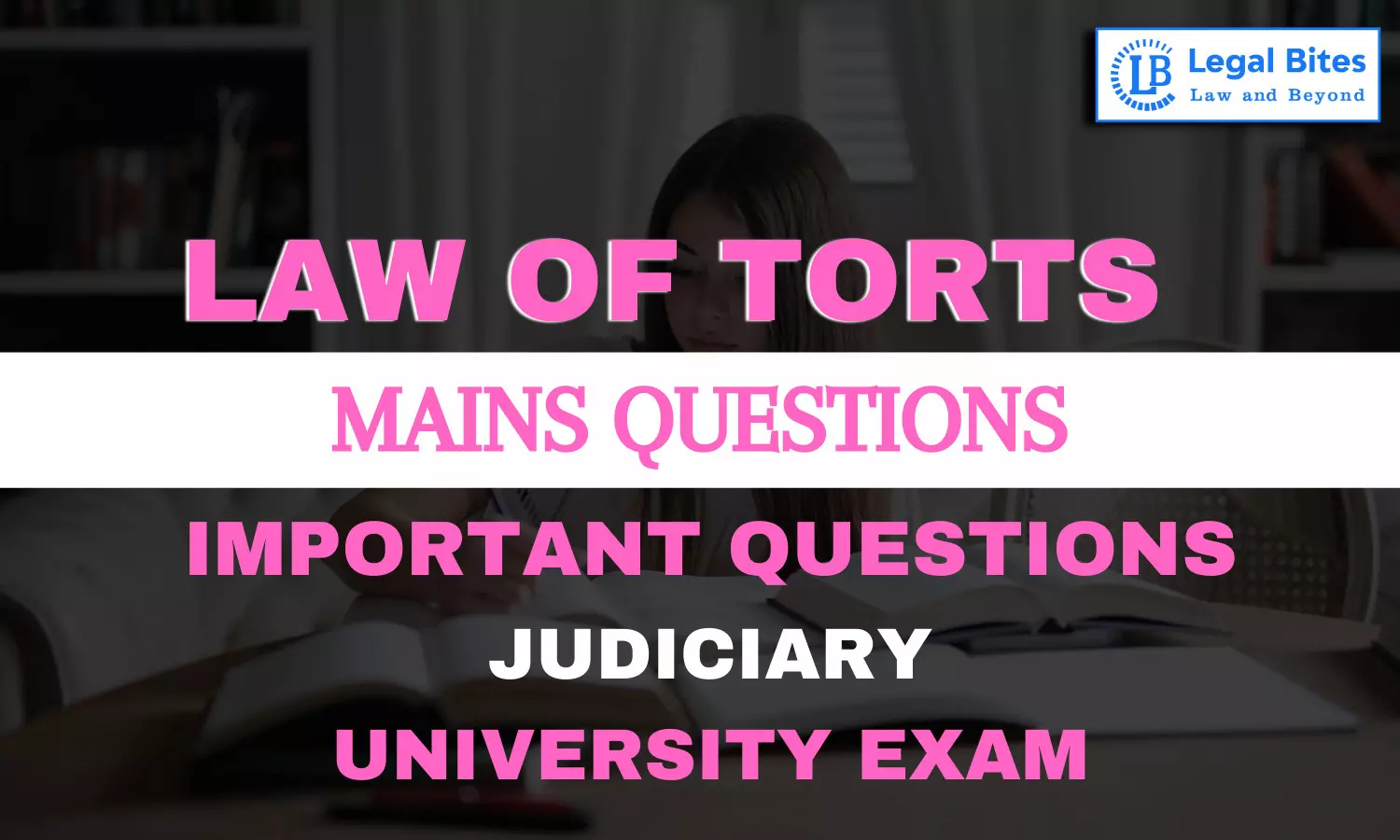Law of Torts Mains Question Answer Series 8: Important Questions for Judiciary Exams | Part – VIII
Legal Bites presents the Law of Torts Important Question-Answer Series. The questions listed here will help students study for various Competitive and University Exams.

Legal Bites presents the Law of Torts Important Question-Answer Series. The questions listed here will help students study for various Competitive and University Exams. Candidates can use Legal Bites' list of questions to help them determine the most important and often asked questions and practice their aptitude and knowledge.
Answering questions is a continuous process that is an inevitable component of any test preparation, as we all know. A well-written response displays not just a candidate's knowledge but also his or her ability to tailor the content to the question's requirements.
It is vital to prepare for this exam to pass it thoroughly. To attain mastery over the subjects studied, applicants only need to keep practising these questions in the months coming up to the examinations. Following it, the candidate's confidence level, as well as their scores, will vastly improve.
Law of Torts Mains Question Answer Series 8: Important Questions for Judiciary Exams | Part – VIII
Question 1
Choose any of the two topics given below and elucidate the distinction:[DJS 2019]
(a) Tort and Breach of Contract
(b) Tort and Quasi Contract.
(c) Tort and Bailment
Question 2
Explain and illustrate the rule established in Rylands v. Fletcher with special reference to Union Carbide Case (MIC Gas Leak Case). [BJS 1991]
Question 3
A land owner by working his mines causes subsidence of surface resulting in the collection of rain-water which percolates into his neighbour's mine and thereby cause trouble and expense to his neighbour, owner of the mine. Can the latter maintain an action for damages against owner of the land? [BJS 1978]
Question 4
Write short note on Unintentional Defamation. [JJS 2001]
Question 5
"In an action for malicious prosecution, the plaintiff has to prove, first, that he was innocent, and, second, that there was want of reasonable and probable cause." What is malicious prosecution? Explain the essentials to be proved in a suit for damages for malicious prosecution. [BJS 2011]
Question 6
"A master is not responsible for a wrongful act done by his servant, unless it is done in the course of employment." Comment and explain the circumstances when wrongful acts are deemed to be done in the 'course of employment'. Refer to decided cases. [BJS 2018]
Question 7
A hires a motor taxi driven by B. It collides with another taxi driven by C. The Collision is caused by the negligence of B and C both. A is hurt? Can A recover damages and from whom? [RJS 1976]
Question 8
"The duty to take care arise out of various relations which it may not be possible to enumerate exhaustively and the courts recognize 'new duties' when they think that to be just."
In reference to the 'new duties' in the above statement, elaborate the concept of duty of care with reference to duty of care in medical profession. [BJS 2011]

